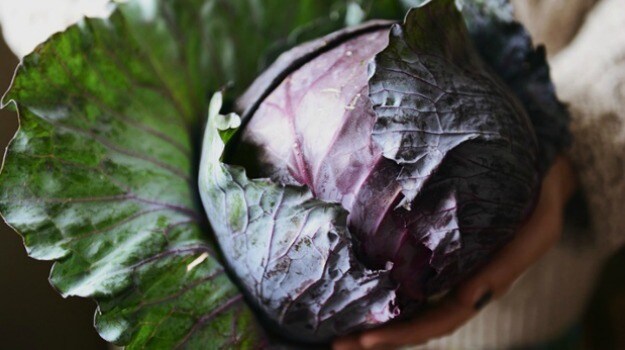Read on to find out the best vegetables to eat during the winter season and why.

Winter Diet: Red cabbage has a higher nutritional profile than green cabbage
Fresh fruits and vegetables are tastier and nutrient-dense when consumed in a season since they have not been processed or preserved. Out-of-season fruits and vegetables typically have a milder flavour because once picked, they start to lose their nutritional content. Antioxidants found in fresh fruits and vegetables can be used to fight disease.
Seasonal fruits and vegetables have health benefits as well as financial advantages. During the appropriate seasons, fruits and vegetables are frequently given at discounted costs in neighbourhood farmer's markets. Read on to find out the best vegetables to eat during the winter season and why.
Here are in-season vegetables you must consume in winter and why:
1. Radish
Vitamins B and C, as well as potassium, are abundant in radishes. Their spicy flavour is related to isothiocyanates, a unique class of sulfur-containing chemicals that have been linked to numerous health advantages. These potent plant substances function as antioxidants in the body, reducing inflammation. Radishes' potential to fight cancer has been the subject of extensive research. Radish is usually only available in winter so make sure to make the most out of them this season.
2. Cabbage
This cruciferous vegetable gives meals a lot of flavourful crunch without adding a lot of calories. As a matter of fact, 1 cup of chopped cabbage contains just 18 calories and 4 grams of carbohydrates, of which 2 are fibre. Fibre is excellent for controlling blood sugar and assisting with weight management.
3. Beetroot
Root vegetables known as beets have a distinctive ruby-red colour and delicious leafy greens. They offer a wide variety of nutrients, including potassium, a mineral that helps control blood pressure. Manganese is also plentiful, a mineral necessary for the synthesis of collagen, which promotes healthy skin and joints. High in energy-giving B vitamins like folate. Low folate consumption has also been connected in research to depression.
4. Carrot
This crunchy veggie happens to be quite nourishing. Beta-carotene, which may be transformed into vitamin A in the body, can be found in abundance in carrots. The immune system, appropriate growth and development, and eye health are all dependent on vitamin A. Antioxidants called carotenoids are abundant in carrots. These lessen the chance of developing chronic illnesses.
5. Sweet potatoes
Sweet potatoes are available all year round but especially beneficial during winter. With fibre, beta-carotene, vitamins A and C, and antioxidants stepping up to the plate, sweet potatoes are a nutritional punch. Furthermore, because they rank relatively low on the glycemic index, they are excellent for filling up without feeling sluggish.
6. Red cabbage
A cruciferous vegetable that grows in cool climates is cabbage. Although red and green cabbages are both very nutritious, red cabbage has a higher nutritional profile. Furthermore, it is a good source of potassium, manganese, and B vitamins. Antioxidant levels are where red cabbage really excels, though. These vegetables' vibrant colour is a result of anthocyanin pigments. Anthocyanins are members of the antioxidant flavonoid family, which has been associated with a range of health advantages.
Make sure to add these vegetables to your daily diet to extract the most benefits out of these nutritious foods.
Disclaimer: This content including advice provides generic information only. It is in no way a substitute for a qualified medical opinion. Always consult a specialist or your own doctor for more information. NDTV does not claim responsibility for this information.
DoctorNDTV is the one stop site for all your health needs providing the most credible health information, health news and tips with expert advice on healthy living, diet plans, informative videos etc. You can get the most relevant and accurate info you need about health problems like diabetes, cancer, pregnancy, HIV and AIDS, weight loss and many other lifestyle diseases. We have a panel of over 350 experts who help us develop content by giving their valuable inputs and bringing to us the latest in the world of healthcare.













